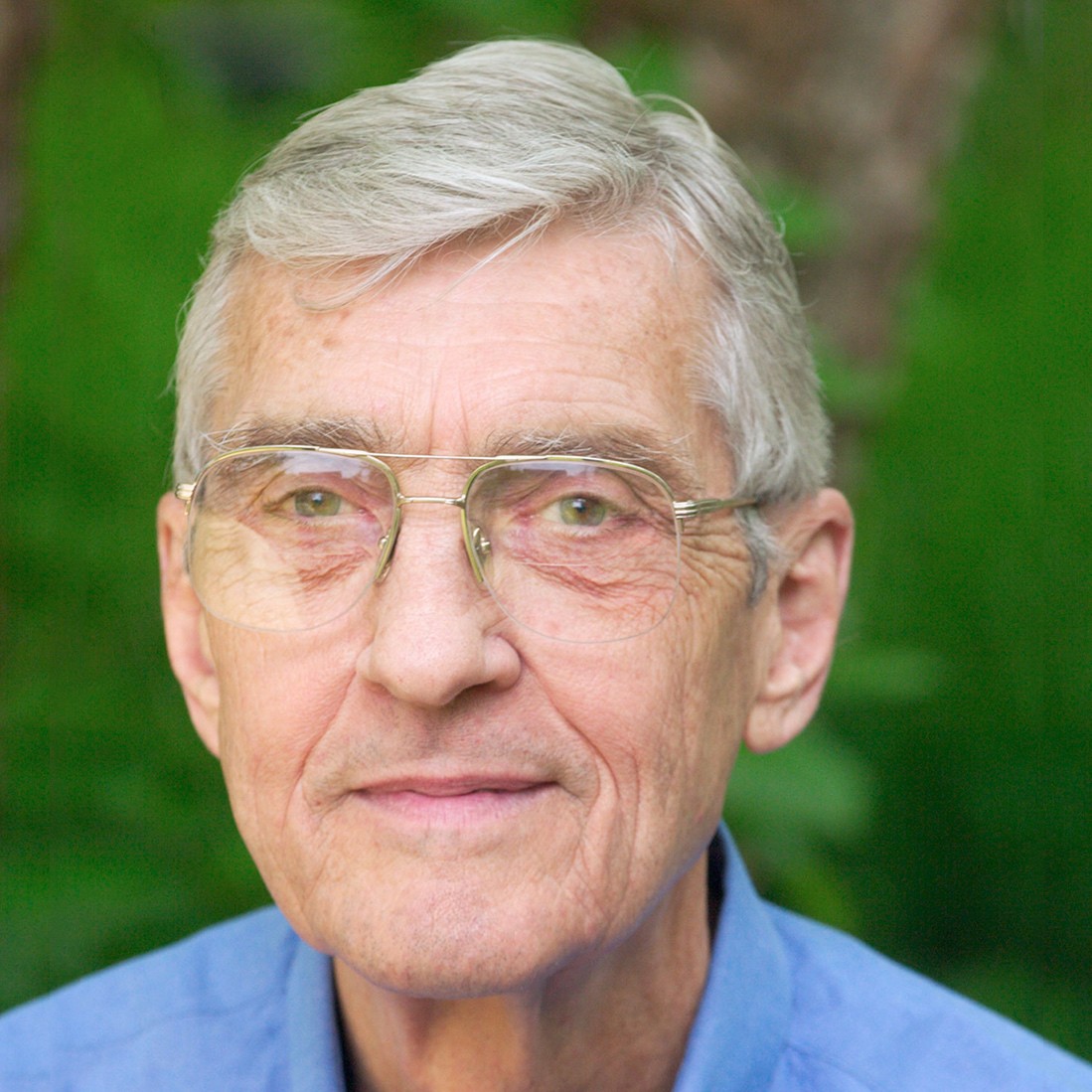Athens, Ga. – Bernard C. Patten, Regents’ Professor Emeritus in the University of Georgia Odum School of Ecology, will deliver a lecture, “The Network Trophic-Dynamic Aspect of Holoecology,” at 4:00 p.m. on Thursday, April 1 via Zoom. This event is free and open to all; please fill out this form to be added to the EcoSeminar listserv to receive the link.
Patten’s talk, which he has dubbed the first “Nonagenarian Ecologist Lecture,” is taking place on the fifty-third anniversary of his first day as a faculty member at the University of Georgia.
“This is a takeoff on a classic 1942 paper by Raymond L. Lindeman, The Trophic-Dynamic Aspect of Ecology, which proved foundational in the development of ecosystem ecology,” Patten said. Lindeman’s study of the mechanisms of succession in a bog in northern Minnesota offered a new theoretical framework for understanding how energy moves through ecosystems.
Patten, who retired in 2012, is a leading figure in systems ecology. Working with his students, postdoctoral researchers, and faculty colleagues, he developed a formal system theory of the environment that uses network mathematics to represent and analyze energy-matter flows and stocks in ecosystems, which will be the subject of his lecture.
“Physics describes reality as having two phases, particles and fields, each generating the other in different kinds,” Patten said. “The particles are local, material and concrete, and can be studied empirically. The fields are nonlocal, immaterial and distributed, and with limited tangibility must be studied through theory.
“Ecology, as most science, is insistently empirical; the field-theoretical side of what it will ultimately become is largely yet to be developed. ‘Holoecology’is the beginning of a field theory of ecology. ‘Network trophic dynamics’ is the beginning of a field theory of trophic dynamics. A mathematical ‘Theory of Environs,’ an environmental system theory, underlies both. Environs are ecological fields, partition elements of ecosystems that form the composite ‘particles’ (organisms and other concrete categories) of empirical ecology,” he said. “This seminar gives an overview of both holoecology and network trophic dynamics.”
Patten used this framework to lead a 12-year systems ecology study of the Okefenokee Swamp. His nearly 250 publications include a four-volume book series, Systems Analysis and Simulation in Ecology, andlater an edited volume summarizing the state of the field, Complex Ecology: The Part-Whole Relation in Ecosystems. Since his retirement, Patten has continued his innovative scholarship, publishing regularly and often. In 2020 alone he coauthored a paper in Environmental Modelling and Software, a book chapter on Innovations in Collaborative Modeling, from Michigan State University Press, and was a coauthor of the second edition of the textbook A New Ecology: Systems Perspective, from Elsevier. His academic honors include the George M. Van Dyne Systems Ecology Award from the International Society for Ecological Modelling and the Senior Researcher Prigogine Medal, jointly given by Siena University, Italy, and the Wessex Institute of Technology, United Kingdom.

